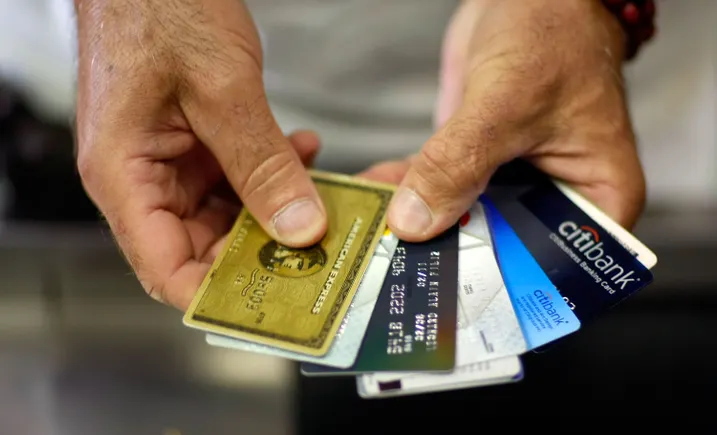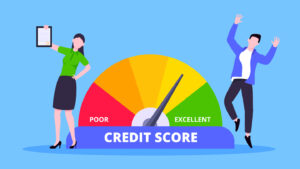🔑 Introduction: Credit Cards – A Tool or a Trap?
Credit cards have revolutionized the way we manage money. They offer convenience, security, and even rewards for everyday purchases. But they also come with a hidden danger: debt accumulation. Many people fall into the trap of spending beyond their means, only to find themselves buried under high-interest payments and mounting bills. The good news? You can enjoy the benefits of credit cards without falling into debt—if you follow a few smart strategies.
💡 1. Understand the Mechanics of Credit Cards
Before you swipe, it’s crucial to understand how credit cards actually work. When you use a credit card, you’re borrowing money from the bank or issuer. You’re expected to pay it back within a billing cycle, typically 30 days. If you don’t pay the full amount, you’ll be charged interest—often at rates much higher than personal loans.
There’s also the concept of a grace period, which is the time between your billing cycle end and your payment due date. If you pay your full balance during this time, you avoid interest. But if you miss it or pay only the minimum, interest kicks in immediately. Knowing these terms—like APR (Annual Percentage Rate), credit limit, and billing cycle—can help you make informed decisions and avoid costly mistakes.
📊 2. Track Your Spending Like a Hawk
One of the easiest ways to fall into debt is by losing track of your spending. Credit cards make it easy to swipe without thinking, especially for small purchases that add up quickly. That’s why it’s essential to monitor your expenses regularly.
Use budgeting apps like Mint, YNAB (You Need A Budget), or even your bank’s mobile app to categorize and track your spending. Set monthly budgets for essentials like groceries, fuel, and entertainment. Review your statements weekly to catch any unusual charges or patterns. When you’re aware of where your money is going, you’re far less likely to overspend.
🧾 3. Pay Your Balance in Full—Always
Paying only the minimum due might seem like a relief, but it’s a dangerous habit. Minimum payments barely cover the interest, meaning your principal balance remains almost untouched. Over time, this leads to compounding debt and a lower credit score.
Make it a rule to pay your full balance every month. If you can’t afford to pay it off, reconsider whether the purchase was necessary in the first place. Treat your credit card like a debit card—only spend what you already have in your bank account.
🛑 4. Avoid Cash Advances at All Costs
Cash advances are one of the most expensive features of a credit card. Unlike regular purchases, they come with no grace period, meaning interest starts accruing immediately. Plus, there’s usually a hefty fee involved—often 2–5% of the amount withdrawn.
Unless it’s a dire emergency, avoid using your credit card for cash. Explore other options like personal loans or borrowing from friends or family. Cash advances should be your absolute last resort.
🎯 5. Set a Personal Credit Limit Below the Actual Limit
Just because your bank offers you a ₹1,00,000 credit limit doesn’t mean you should use it all. In fact, using more than 30% of your available credit can negatively impact your credit score. Set a personal limit—say ₹20,000 or ₹30,000—and stick to it.
You can even set up alerts to notify you when you’re approaching your self-imposed limit. This helps you stay disciplined and avoid the temptation of overspending.
🧠 6. Use Credit Cards for Planned Purchases Only
Impulse buying is the enemy of financial health. Credit cards make it easy to buy things you don’t need, simply because you don’t feel the immediate impact. To avoid this, use your card only for planned, budgeted purchases.
This includes essentials like groceries, fuel, and bills, or larger purchases like electronics and travel—but only if you’ve saved for them. Avoid using your card for emotional spending or retail therapy. If it’s not in your budget, it shouldn’t be on your card.
🏆 7. Maximize Rewards Without Overspending
Credit cards often come with attractive rewards—cashback, travel points, discounts, and more. While these perks are great, they can also tempt you to spend more than necessary. The trick is to use your card strategically to earn rewards on purchases you were going to make anyway.
For example, if your card offers 5% cashback on groceries, use it for that purpose—but don’t buy extra just to earn points. Rewards should be a bonus, not a reason to spend.
📉 8. Limit the Number of Cards You Own
Having multiple credit cards can be beneficial for rewards and credit utilization, but it also increases the complexity of managing payments. More cards mean more due dates, more statements, and more chances to miss a payment.
Start with one or two cards and master the art of managing them responsibly. Only consider adding more if you’re confident in your ability to track spending, pay on time, and avoid debt.
📆 9. Automate Your Payments to Avoid Late Fees
Late payments not only incur fees but also hurt your credit score. To avoid this, set up automatic payments for at least the minimum due. Ideally, automate the full balance payment so you never miss a deadline.
Most banks offer this feature through their apps or websites. You can also set calendar reminders or use budgeting tools to keep track of due dates. Automation is a simple way to protect your financial health.
📈 10. Monitor Your Credit Score Regularly
Your credit score is a reflection of your financial behavior. A high score can help you secure loans at better interest rates, while a low score can limit your options. Use tools like CIBIL, Experian, or Credit Karma to check your score monthly.
Look out for errors, fraudulent activity, or sudden drops. If you notice anything unusual, report it immediately. Monitoring your score helps you stay proactive and maintain a strong financial profile.
🧘 Conclusion: Be the Master of Your Credit, Not Its Victim
Credit cards are not inherently bad—they’re just misunderstood. When used wisely, they can help you build credit, earn rewards, and manage cash flow. But without discipline, they can quickly become a source of stress and debt.
The secret lies in awareness, planning, and consistency. Treat your credit card like a financial tool, not a lifeline. Spend within your means, pay on time, and stay informed. That way, you’ll enjoy all the benefits without the burden.




